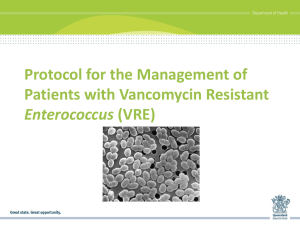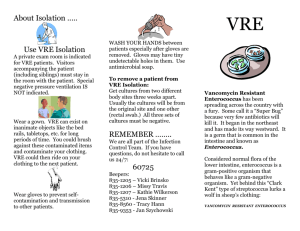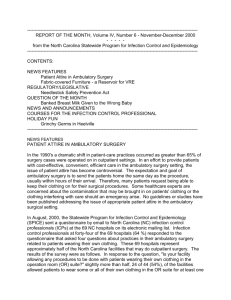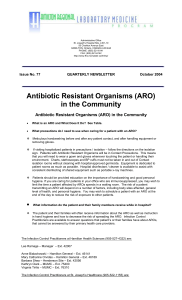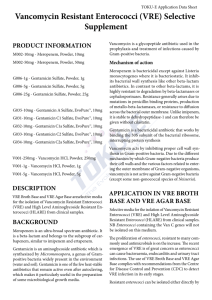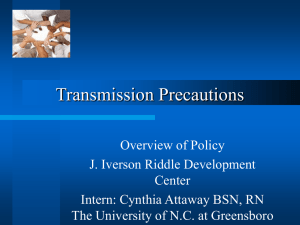Vancomycin Resistant Enterococci (VRE)
advertisement
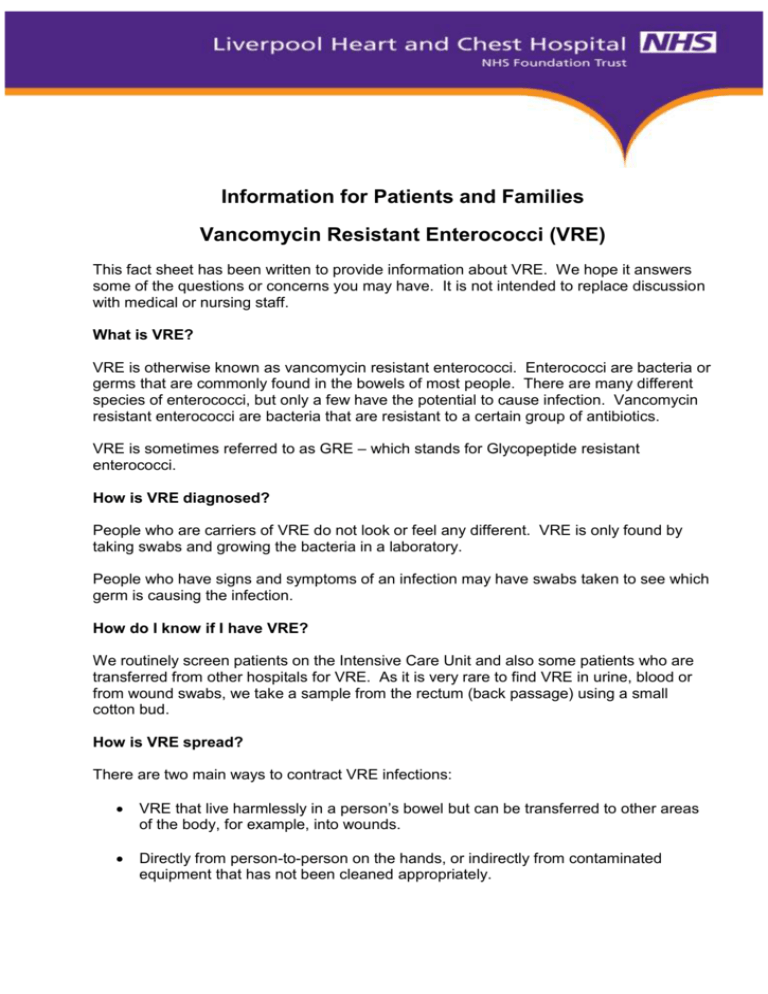
Information for Patients and Families Vancomycin Resistant Enterococci (VRE) This fact sheet has been written to provide information about VRE. We hope it answers some of the questions or concerns you may have. It is not intended to replace discussion with medical or nursing staff. What is VRE? VRE is otherwise known as vancomycin resistant enterococci. Enterococci are bacteria or germs that are commonly found in the bowels of most people. There are many different species of enterococci, but only a few have the potential to cause infection. Vancomycin resistant enterococci are bacteria that are resistant to a certain group of antibiotics. VRE is sometimes referred to as GRE – which stands for Glycopeptide resistant enterococci. How is VRE diagnosed? People who are carriers of VRE do not look or feel any different. VRE is only found by taking swabs and growing the bacteria in a laboratory. People who have signs and symptoms of an infection may have swabs taken to see which germ is causing the infection. How do I know if I have VRE? We routinely screen patients on the Intensive Care Unit and also some patients who are transferred from other hospitals for VRE. As it is very rare to find VRE in urine, blood or from wound swabs, we take a sample from the rectum (back passage) using a small cotton bud. How is VRE spread? There are two main ways to contract VRE infections: VRE that live harmlessly in a person’s bowel but can be transferred to other areas of the body, for example, into wounds. Directly from person-to-person on the hands, or indirectly from contaminated equipment that has not been cleaned appropriately. What happens if I am diagnosed with VRE? If you are found to be carrying VRE, without it causing you an infection, you may be transferred to a single room to minimise the risk of spread to other patients on the ward. Patients in hospital have a greater risk of contracting infections because of their health conditions. Patients who have devices in place, such as urinary catheters and drips, are more at risk. If you have an infection your doctor will discuss the most appropriate treatment with you. Although VRE is resistant to most common antibiotics, there are antibiotics available that are effective against this germ. What does the Liverpool Heart and Chest Hospital do to help prevent VRE spreading? We take this matter very seriously and every care is taken to prevent the risk of infection among our patients. All staff and patients are regularly educated and advised by the Infection Prevention and Control Team on ways of reducing the spread of bacteria at the hospital. For example; ensuring that you wash your hands after using the toilet and before you eat and by not touching any wounds, catheters or drips. All staff routinely use a hygienic hand rub to clean their hands before caring for a patient. Healthcare professionals will also take other precautions to prevent spread to other patients, for example, they may use disposable gloves and aprons. At the Liverpool Heart and Chest Hospital we have a screening programme to check for the presence of VRE in high risk areas and high standards of cleanliness are maintained by our hygiene assistants. Will VRE delay my discharge home? No, it will not. If the medical team feel you are clinically well enough and it is safe for you to go home, you will be discharged from hospital. You will be given advice on how to manage your condition. Who can I contact with any queries or concerns I may have? If you have any concerns or require further information regarding VRE or any other infection, please call the Infection Prevention and Control Team on: 0151 600 1326 or 0151 600 1057 Or visit: http://www.dh.gov.uk
